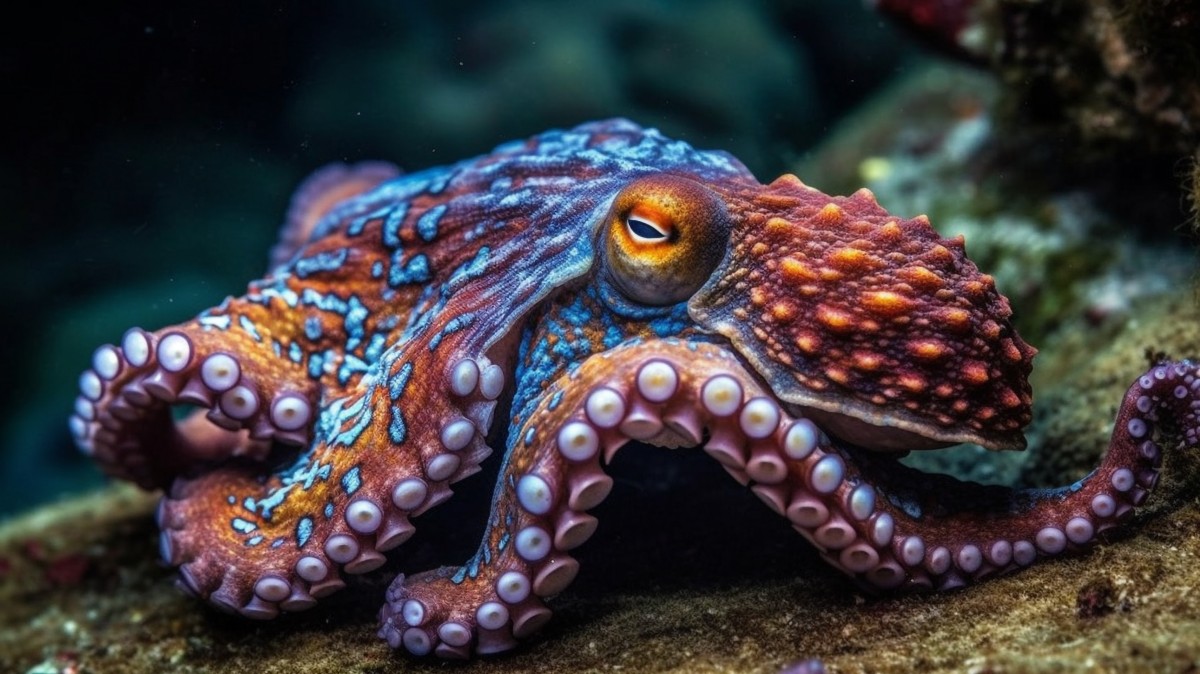Compassion in world agriculture, Eurogroup for Animals and AnimaNaturalis They are asking the fisheries and aquaculture products company to abandon its plans build the world’s first octopus farm in Spainas new documents reveal that, in addition to ignoring the issues of animal crueltyThe significant threats the farm would pose to wildlife, the environment and human health have not been taken into account.
NGOs Compassion in world agriculture, Eurogroup for Animals and AnimaNaturalis one immediately New Pescanova to immediately halt the project and claim that, in addition to causing suffering to the octopuses, the farm contradicts its own claims of corporate sustainability. One concern is that the farm could threaten nearby dolphins and turtles, and its discharges could increase water pollution and CO₂ emissions.. The Government of the Canary Islands considered that the likelihood of these consequences occurring was “significantly high”.
On his web page, New Pescanova claims to be committed to “preserving biodiversity”, “protecting the ecosystem” and “promoting the circular economy”. However, the Canary Islands government deemed its own environmental report for the Puerto de Las Palmas farm in Gran Canaria insufficient due to concerns that the plans:


- threaten local wildlifeincluding protected cetaceans (dolphins and porpoises) and vulnerable sea turtles, due to noise and water pollution resulting from their proximity to a Marine Protected Area (MPA).
- pose a risk to public health by using seawater near the port that is not of sufficient quality to be used in the production of food for human consumption.
- cause pollutionincluding CO emissions2odor and leakage problems that could significantly contribute to the port’s already highly polluted waters.
- threaten a protected algae speciesthe Cystoseira, present in the area.
- involving highly unsustainable practicessuch as the use of wild fish for food and the facility’s high energy consumption.
On behalf of the team of legal experts at Legal nature who examined the documents, lawyer María Ángeles López Lax made the following statements: «The environmental report of New Pescanova was inadequate and lacked basic information allowing the government to assess the farm’s impact on the environment and human health. Before permission is granted, the company must demonstrate that the operation will not impact protected species or endanger public health, but they have not addressed even the most fundamental of these issues.
Octopuses are naturally unique, intelligent and solitary creatures., which do not adapt to the overcrowded conditions typical of industrial farms. This would increase aggression and eventually lead to cannibalism. They are also carnivores, which means they must be fed wild fish, an unsustainable practice that would put additional pressure on already overexploited fish populations.
Compassion in world agriculture published his report Intensive octopus farming: a recipe for disaster in 2021, in which scientific evidence for this came to light Breeding octopuses would be cruel and harmful to the environment. And a year ago, CIWF and Eurogroup for Animals they launched The terrible reality of octopus farming exposedtheir joint response to the plans New Pescanova to breed approximately one million of these intelligent and unique animals annually on an industrial water farm.
On October 8 last year, World Octopus Day, 75 NGOs, experts and public figures led by Compassion in world agriculture and Eurogroup for Animals, wrote to the Canary Islands government urging it to reject the plans. Thousands of supporters also took action, calling on the community president to stop the octopus farm.
The Dr. Elena Lara, marine biologist and research director of Compassion in World Farmingwho wrote the report CIWFhe claimed: “This octopus farm Not only would it cause cruelty to these naturally solitary and intelligent animals and be ecologically unsustainable, but it is also hypocritical for New Pescanova promotes plans that contradict companies’ own sustainability claims.
Keri Tietge, head of aquatic animal policy at Eurogroup for Animalshas declared: “It is unjustifiable to introduce this new type of factory farming, while climate scientists warn of the urgent need to change our food systems and make our diets more sustainable. “We deserve better than continued environmental destruction to line the pockets of corporations, and these incredible animals deserve better than lives reduced to confinement and suffering.”
Cristina Ibáñez, campaign coordinator of AnimaNaturalisstated: “Our society should move towards a more empathetic and compassionate treatment of animals. If this deviation continues, despite the rejection by the scientific community and much of society, we will face a serious rupture of these values.
NGOs ask their followers to a New Pescanova in the social networks urge them to immediately stop their plans to octopus farm.

